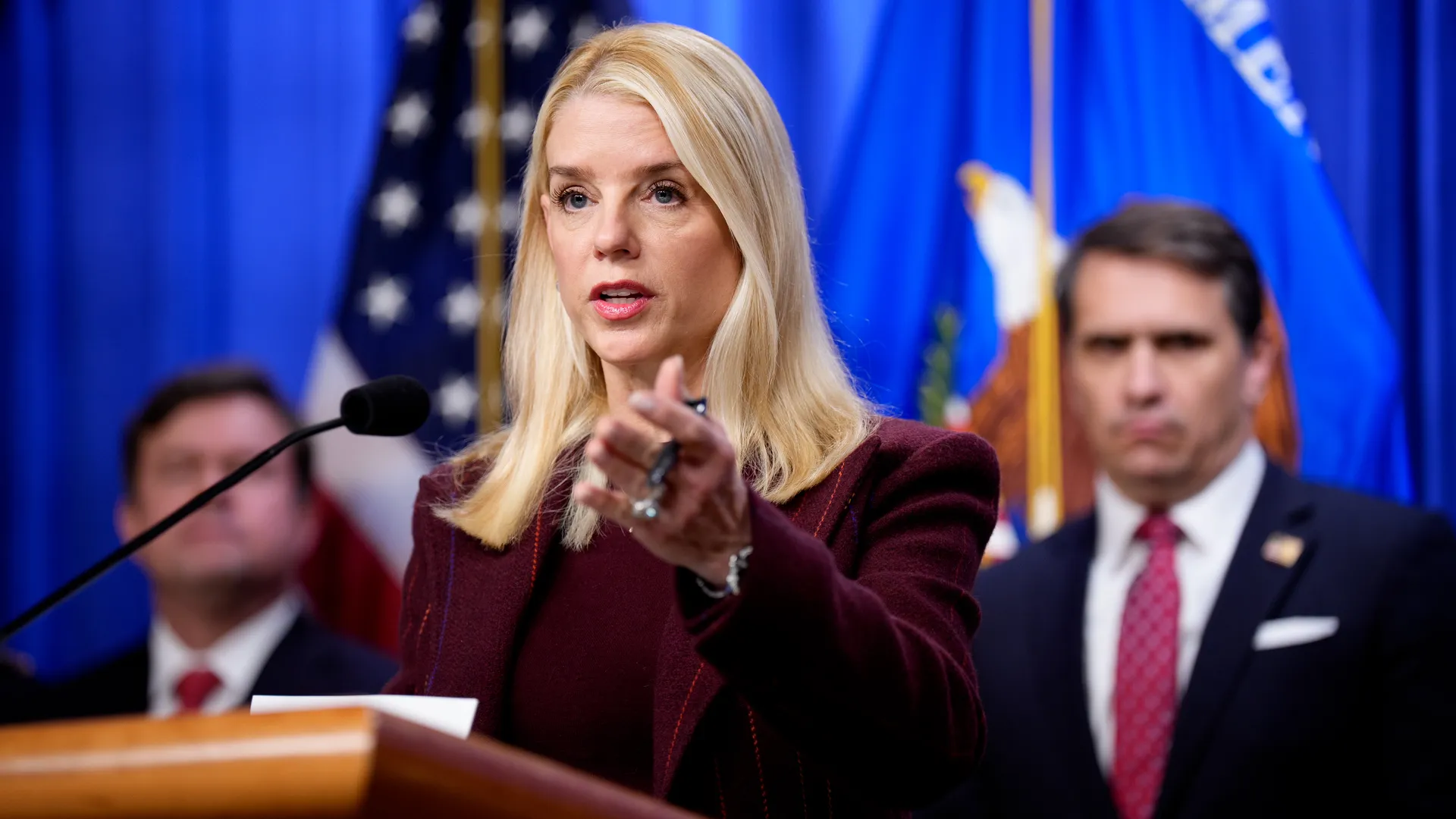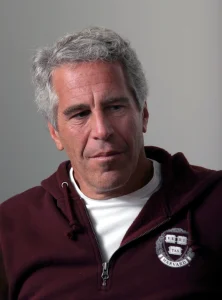In a sweeping announcement that combined crime statistics, federal coordination, and new tools for community involvement, Attorney General Pam Bondi on Monday detailed what she described as one of the most dramatic short-term public safety turnarounds in recent Memphis history. Standing inside the Shelby County Office of Preparedness, Bondi credited recent federal intervention for what officials say is a rapid decline in multiple categories of violent crime over the last two months.
The remarks came as part of a broader presentation on the results of a federal law-enforcement surge that began in late September. Bondi said the numbers now speak for themselves: violent crime is down significantly compared with the same 56-day period last year. According to the newly released data, murders have dropped 48%, sexual assaults are down 49%, robberies have fallen 61%, and overall serious crime has declined by 45%.
With senior state and federal officials at her side, Bondi framed the results as proof that aggressive coordination between agencies—combined with targeted operations aimed at violent offenders—can produce rapid improvements even in cities struggling with long-term crime crises. Memphis had recently held the unwanted distinction of having the nation’s highest violent crime rate in 2024, sitting a staggering 344% above the national average. Now, Bondi said, the tide is finally turning.
Federal Task Force Called the “Driving Force” Behind Drop
A key component of the turnaround, according to Bondi, is the multi-agency federal task force deployed by the administration in late September. Officials revealed that the task force has made more than 3,100 arrests over the last two months. Of those, 327 were confirmed gang members. Authorities also seized 501 firearms, filed federal charges against 157 suspects, and located 121 missing or endangered children.
To illustrate the scale of the undertaking, officials explained that 31 federal, state, and local agencies are currently operating under the joint umbrella of the initiative. The combined enforcement presence includes U.S. Marshals, federal investigators, specialized units, Tennessee law enforcement, and local police, all of whom are working daily operations within the Memphis area.
One official speaking Monday noted that the approach is modeled after a similar operation conducted previously in Washington, D.C., which had also produced notable short-term reductions in violent crime. The Memphis surge, he argued, is further evidence that a layered strategy of federal leadership combined with local cooperation can deliver results far faster than many residents expect.
Community Response: “People Feel the Difference”
Federal officials said they have received hundreds of comments from residents since the surge began. Many, they claimed, reported a visible difference in their neighborhoods and a sense that law enforcement is more present and more responsive. Local residents have reportedly approached federal deputies at gas stations, grocery stores, and public events expressing gratitude that something is finally being done about escalating violence.
The federal representatives emphasized that, despite the criticism from some groups, the overwhelming feedback has been positive. They pointed to the sharp decline in homicides and robberies—traditionally the most feared crimes—as an indicator that residents are genuinely experiencing the impact.
Tennessee Gov. Bill Lee, also present during Monday’s announcement, underscored this point. He highlighted what he described as unprecedented levels of cooperation between federal, state, and local authorities. According to Lee, the last eight weeks mark one of the most significant drops in violent crime Memphis has seen in 20 years.
One state official said the city is on track to “halve the murder rate” compared with prior years if the momentum continues, calling the transformation “one of the most promising safety turnarounds happening anywhere in the United States.”
Introduction of New Public Housing Crime Hotline
In addition to announcing the latest crime statistics, officials introduced a new federal hotline designed specifically for public housing residents. The hotline, unveiled by Housing and Urban Development Secretary Scott Turner, aims to give tenants a direct and confidential way to report crime, gang activity, illegal immigration violations, sex offenders, and suspected human trafficking inside federally funded housing complexes.
The hotline number—1-800-347-3735—will operate Monday through Saturday, from 8 a.m. to 8 p.m. Central Time. An online submission portal at HUDOIG.gov/hotline will remain active 24/7.
Turner described the hotline as a necessary tool for protecting vulnerable residents who often feel intimidated about speaking to local police. He argued that too many public housing units across the country have become havens for criminals who abuse the system, and that federal oversight is necessary to ensure that housing funded by taxpayers serves law-abiding Americans.
He added that illegal immigrants living in public housing “have no right to displace citizens” and criticized what he sees as a pattern of abuse in some cities where federal housing benefits are extended to people who entered the country unlawfully.
Memphis Housing Authority: Large Footprint, High Stakes
Memphis has one of the largest HUD-supported populations in the region. The Memphis Housing Authority serves over 9,700 households and receives $107 million annually to administer federal rental assistance programs.
The new hotline is expected to become a central tool for residents who have long complained about intimidation within certain complexes. Officials hope residents will use it to report gang activity and criminal behavior without fear of retaliation.
Federal representatives also stressed that tips can be submitted anonymously, and all reports will go directly to HUD’s Office of Inspector General, bypassing local intermediaries.
Criticism From Some Memphis Neighborhoods
Despite the praise from many public officials, not everyone is satisfied with the federal task force’s presence. Some residents in majority-Black neighborhoods have argued that the surge relies too heavily on aggressive arrests and street-level sweeps, which they say can intimidate law-abiding Latino families and contribute to mistrust between police and the community.
Earlier data released in October showed that 319 of the arrests made during the operation were tied to administrative warrants related to immigration violations rather than violent crime. Community activists have pointed to those numbers as evidence that the operation casts too broad a net, sweeping up individuals who pose no threat to the public.
Officials responded Monday by emphasizing that every arrest—regardless of category—helps reduce instability, arguing that criminals with outstanding warrants often have connections to more serious offenses. They said immigration-related arrests are a necessary enforcement tool because gang members frequently move in and out of the country illegally.
Strains on Local Jail and Court Systems
The massive influx of arrests has created a burden on Shelby County’s justice system. The jail, already near capacity before the operation began, has been forced to transfer inmates to other facilities across the region. Local courts have discussed adding night and weekend sessions to prevent a case backlog that could overwhelm public defenders and prosecutors alike.
Officials acknowledged the strain but insisted the pressure is a short-term side effect of long-term improvements. They argued that the priority must remain public safety, and that the justice system will adapt as needed to handle the caseload.
Possibility of Expansion to Other Cities
When asked whether similar operations might soon be launched in other high-crime cities, Bondi said discussions with mayors across the country are underway. She stressed that the federal government is prepared to support any governor or mayor seeking assistance, regardless of political affiliation.
“This isn’t about party lines,” she said. “This is about protecting Americans—every American, in every neighborhood.”
Bondi emphasized that the Memphis model could be replicated nationwide, noting that the federal government’s involvement has already proven effective in other cities as well.

Emily Johnson is a critically acclaimed essayist and novelist known for her thought-provoking works centered on feminism, women’s rights, and modern relationships. Born and raised in Portland, Oregon, Emily grew up with a deep love of books, often spending her afternoons at her local library. She went on to study literature and gender studies at UCLA, where she became deeply involved in activism and began publishing essays in campus journals. Her debut essay collection, Voices Unbound, struck a chord with readers nationwide for its fearless exploration of gender dynamics, identity, and the challenges faced by women in contemporary society. Emily later transitioned into fiction, writing novels that balance compelling storytelling with social commentary. Her protagonists are often strong, multidimensional women navigating love, ambition, and the struggles of everyday life, making her a favorite among readers who crave authentic, relatable narratives. Critics praise her ability to merge personal intimacy with universal themes. Off the page, Emily is an advocate for women in publishing, leading workshops that encourage young female writers to embrace their voices. She lives in Seattle with her partner and two rescue cats, where she continues to write, teach, and inspire a new generation of storytellers.









